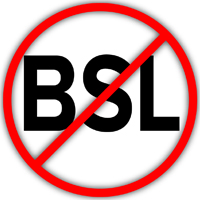A new piece of legislation could mean the end of Breed Specific Legislation (BSL) in Washington State.
If passed, Washington House Bill 2117, introduced in Olympia’s House Judiciary Committee last week, would make it illegal to ban or declare a dog vicious based on the dog’s breed alone. It would also prevent cities from putting BSL on the books, instead making behavior the only indicator of viciousness.
“Most any dog can be made vicious by irresponsible owners, and most any dog can be made gentle by conscientious owners,” says Washington Representative Sherry Appleton (D-Poulsbo), who serves as the primary sponsor of HB 2117.
“This bill affects the lives of many, many families,” Rep. Appleton tells the Tri-City Herald.
Another bill co-sponsor, Representative Chris Reykdal (D-Tumwater), also voiced his strong support for the proposed measure.
“I just don’t fundamentally believe that any breed is genetically predisposed to violence,” he explains, emphasizing that violent dogs are often violent because humans have made them that way.
While proponents of BSL argue that certain breeds are inherently violent because they are used in the illegal blood sport of dog fighting, Rep. Reykdal does not believe that is a reason to ban all dogs of those breeds.
“We used to have cock-fighting,” Rep. Reykdal says. “Human beings used to get chickens and put them together and have them fight, but we would never declare chickens as violent creatures.”
When governments declare certain breeds of dogs dangerous, like the oft-banned and much-misunderstood American Pit Bull Terrier, they discriminate against dogs because of certain physical characteristics, says Benton-Franklin Humane Society Operations Manager Elaine Allison. But using appearance as an indicator of breed is a flawed method of identification, she explains.
“Visual identification is often inaccurate and subjugates dogs and owners to unrealistic expectations that are patently unfair,” Allison says. “Scientific identification does not work either. There is no scientific data to support a claim that any breed of dog is inherently dangerous.”
In fact, Allison points out that the breed with the most dog-bite reports in Washington’s Tri-Cities of Kennewick, Pasco, and Richland isn’t a breed affected by BSL at all — it’s the Chihuahua. Still, Kennewick, Pasco, Connell, Prosser, Grandview, and Mattawa, Washington all have laws in the books that declare all Pit Bulls as automatically dangerous or potentially dangerous, imposing certain restrictions against the breed, and the nearby town of Othello outright bans the breed altogether.
Washingtonian Zak Thatcher drive four hours for the chance to show her support for HB 2117 and the end of BSL in her state. An ER nurse, Thatcher says she sees plenty of dog bites but there is no indication that any one or group of breeds is more likely to be the culprit. Thatcher’s canine companion, Ozzy, joined her for the journey. But because he is a Bull Terrier, Thatcher says, Ozzy wouldn’t be welcome in all Washington communities.
“This dog is banned in several cities based on his appearance,” Thatcher says of Ozzy, who barked excitedly through most of her testimony during last week’s hearing.
“He’s a puppy who has had a very long day,” Thatcher explains, “but the dog himself is harmless.”
But not everyone is thrilled about the prospect of ending BSL in the Evergreen State. Colleen Lynn, who was attacked by a dog in 2007 and currently serves as a dog-bite victim advocate with DogsBite.org, went as far as to submit written testimony opposing HB 2117.
“Cities need to be able to respond when they have a problem and this handcuffs them on an issue as basic as animal control,” Lynn tells The Seattle Times.
And Washington resident Ellen Taft, who was bitten by two dogs in the 1980s, tells the Times that while it is true any kind of dog can bite, not every kind of dog is able to break bones. It is dogs like these, she says — fighting breeds like Pit Bulls and Bull Terriers — Taft has fought to ban from her community.
But Representative Appleton vows to continue the fight to protect good dogs and responsible owners.
“I honestly believe that when you discriminate against a dog, you discriminate against a person,” she says.
Sources: The Seattle Times, Tri-City Herald









